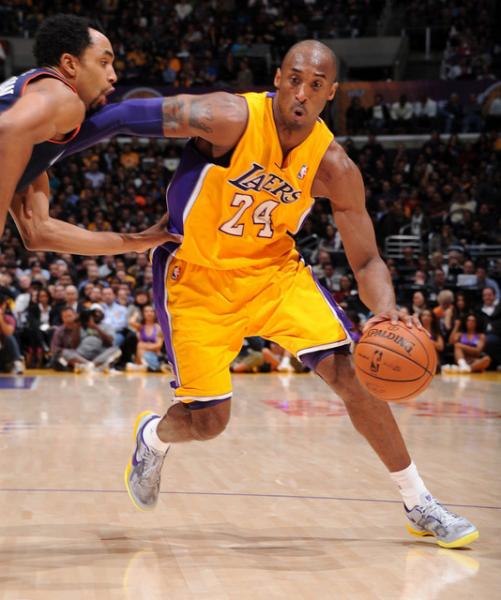The Best Bits From The New Yorker's Kobe Profile

1. Kobe does not see himself gracing the putting greens – even after his basketball career is over. Period.
Bryant’s refusal to take up golf is a point of pride, related to the box he resists being confined to, as an African-American athlete. He told me, “I get questions all the time: ‘What are you going to do when you retire?’ As if I had no life, no talent outside of playing basketball. It absolutely drives me crazy. ‘You just going to golf all day?’ I’m, like, ‘No. Who the fuck said that?’ It’s maddening."
2. His 'Black Mamba' moniker was more than just another facet of his bad-assery.
The adoption of an alter ego was a way of coping, Bryant now admits, with the fallout from his arrest for sexul assault, in a Colorado hotel room, in the summer of 2003.
"After the Colorado incident, I had every major sponsor drop me, except for Nike,” he told me. “So I’m sitting there thinking, What am I going to do now? My vision was to build a brand and do all these things.” (Bryant was born a brand, named after the Kobe beef at a Japanese steak house in the King of Prussia, Pennsylvania.) “Now, everybody’s telling me I can’t do it,” he went on. “The name just evokes such a negative emotion. I said, ‘If I create this alter ego, so now when I play this is what’s coming out of your mouth, it separates from the personal stuff, right? You’re not watching David Banner – you’re watching the Hulk.”
3. Kobe and Shaq were polar opposites in personality and approach – a dynamic that flummoxed even the great Phil Jackson.
“It used to drive me crazy that he was so lazy,” Bryant told me. “You’ve got to have the responsibility of working every single day. You can’t skate through shit.” O’Neal was a clown, and beloved for it, while Bryant, who once told Newsweek that he didn’t believe in happiness, remained aloof. “I was stubborn as a f---ing mule,” he said.Bryant shunned reporters whom he saw talking to O’Neal. O’Neal, in turn, refused to accept help from the same trainers who taped Bryant’s ankles. Their desperate coach, the Buddhist, bookish Phil Jackson, wound up consulting a therapist, and at one point recommended that O’Neal read “Siddhartha.”
4. Kobe's eight-year-old daughter, Gianna, is a mini-Mamba in temperament.
He recalled playing Candyland with her (Gianna) when she was three, and confronting the inevitable question of whether or not to let her win. “You know, it’s my move,” he said. “She obviously can see that I can win, so she’ll know that I’m not-winning on purpose. Then what’s that teaching? So I just play the game, I win – and the kid goes ape shit. She knocked the board over. ‘Baaaaaaa!’ I was, like, ‘Shit, the kid’s like me. Damn it.’”
5. Kobe doesn't care much about the current statistical analytics movement in the NBA – much like former coach Jackson.
The statistical revolution that swept into Major League Baseball shortly after the turn of the twenty-first century had arrived, with a few years’ delay in the NBA, bringing a greater emphasis on three-point shooting from the corners and on finding openings near the basket, for high-percentage attempts.
The kind of versatile player, like Bryant, who could shoot well anywhere on the court as no longer highly prized because twenty-foot jumpers were a low-percentage gamble, by definition. “I’ve always been more interested in the creative side of the game, like how things happen, why things happen, as opposed to just numbers,” Bryant told me. “Numbers have never felt fun to me.”
6. The hoopla around the Trayvon Martin case, in Kobe's eyes, shows how far society has "progressed."
When I brought up LeBron James posting online a photo of the Heat players dressed in hoodies, with their heads bowed, in solidarity with Trayvon Martin, as a political expression, Bryant seemed nonplussed. “I won’t react to something just because I’m supposed to, because I’m an African-American,” he said. “That argument doesn't make any sense to me. So we want to advance as a society and as a culture, but, say, if something happens to an African-American, we immediately come to his defense? Yet you want to talk about how far we’re proressed as a society? Well, if we’ve progressed as a society, then you don’t jump to somebody’s defense just because they’re African-American. You sit and you listen to the facts just like you would in any other situation, right? So I won’t assert myself.”



